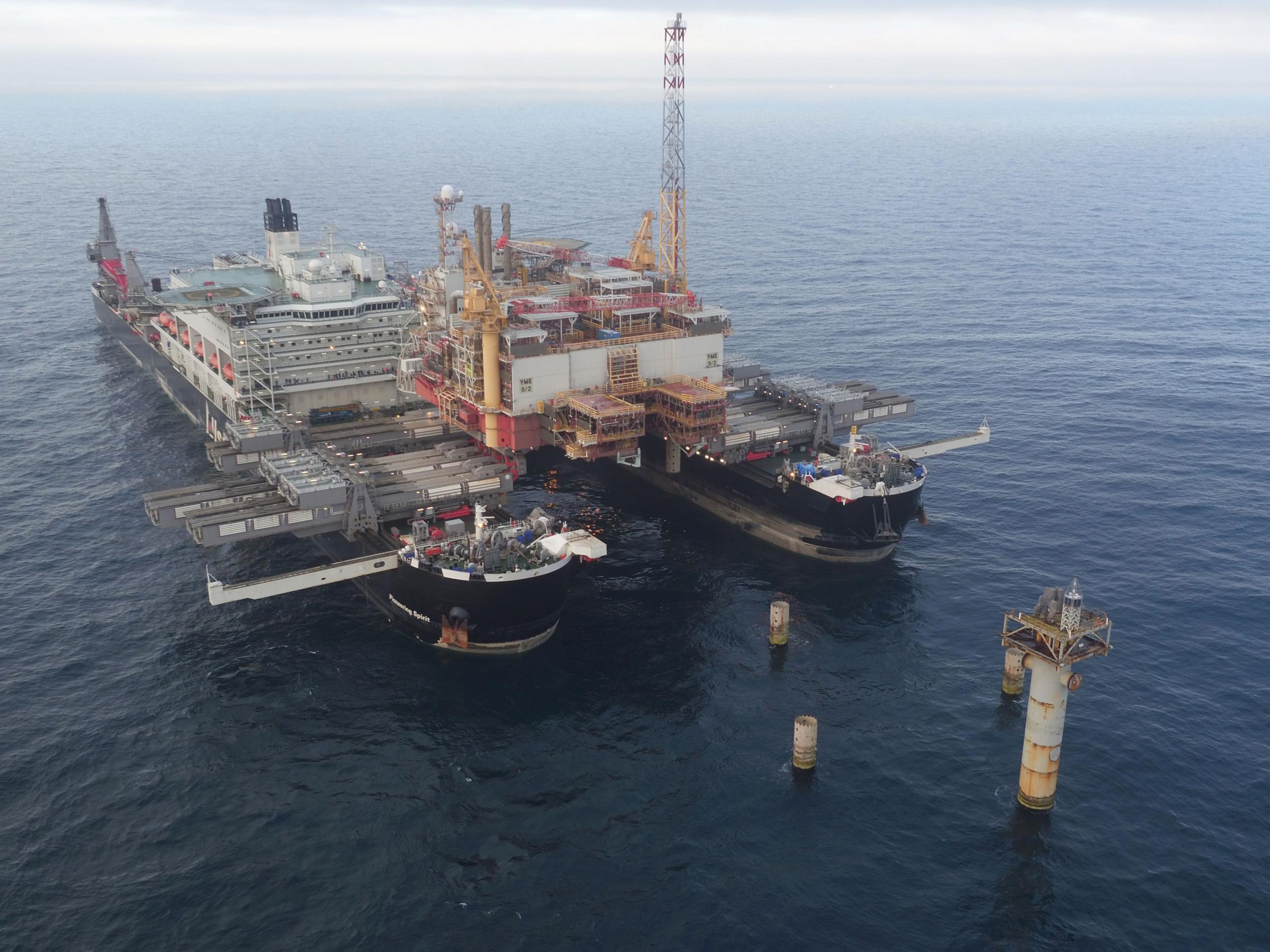World's biggest ship to lift 24,500 tonne Shell oil rig out of sea in most ambitious project of its kind
'It is the ultimate piece of machinery. You can’t find a ship with more equipment than this one'

Your support helps us to tell the story
From reproductive rights to climate change to Big Tech, The Independent is on the ground when the story is developing. Whether it's investigating the financials of Elon Musk's pro-Trump PAC or producing our latest documentary, 'The A Word', which shines a light on the American women fighting for reproductive rights, we know how important it is to parse out the facts from the messaging.
At such a critical moment in US history, we need reporters on the ground. Your donation allows us to keep sending journalists to speak to both sides of the story.
The Independent is trusted by Americans across the entire political spectrum. And unlike many other quality news outlets, we choose not to lock Americans out of our reporting and analysis with paywalls. We believe quality journalism should be available to everyone, paid for by those who can afford it.
Your support makes all the difference.The world’s largest ship will soon attempt the biggest project of its kind and attempt to move an entire North Sea oil rig.
The £2.4bn vessel, Pioneering Spirit, is 382 metres long and wider than three football pitches.
It is due to lift Shell’s Brent Delta oil rig off its concrete legs and to a decommissioning site in Teeside in May.
The ‘topside’ of the rig, including oil processing equipment and living quarters, weighs 24,500 tonnes. The operation is made more difficult by its remote location, with the Brent field situated 116 miles from the Shetland Islands.
The Pioneering Spirit, built last year and owned by pipeline company Allseas, has only completed one job prior to this – lifting the 13,500 Yme platform from Norwegian waters.
The job is fraught with technical challenges but the Pioneering Spirit is a hugely advanced vessel. It is equipped with a motion composition system, preventing the ship from rolling, which will allow the operation to take place in imperfect conditions – instead of having to wait for the ideal time.
In addition to unseen technology like thrusters on the hull, the twin hulled, catamaran-like design of the Pioneering Spirit also stands out. The Brent Delta will be positioned in the space in the middle of the ship and the rig’s eighteen metre concrete legs will be severed.
A hydraulics system, powered with compressed air, will then act as a jack and remove the topside from the concrete legs it was standing on.
“This is a dream come true, to be captain of the biggest ship in the world,” skipper Fred Regtop told Energy Voices. “It is the ultimate piece of machinery. You can’t find a ship with more equipment than this one.”
His ship also serves as a pipe-laying vessel and will work on the contentious Russia – Turkey gas pipeline.
The Brent Delta is to be one of more than a hundred North Sea oil rigs to be decommissioned in the coming decade. The Brent field was one of the most productive for the North Sea oil industry but extraction is no longer economically viable.
Environmental groups have criticised Shell’s plans for decommissioning the Brent field, saying “insufficient information” was provided and condemned the decision to keep the concrete legs underwater . The groups, which included Greenpeace, WWF and Friends of the Earth, called on Shell to do more.
WWF Scotland director Lang Banks said: “Given the enormous size of the rigs and the iconic nature of the Brent field, its decommissioning is being watched closely, both here and globally, and it should therefore be aiming to set the highest possible benchmarks for the rest of the industry to follow.
“If done right, it could open the door for this country to lead a new multi-billion pound, global decommissioning industry that could create thousands of jobs as we continue our transition away from fossil fuels.”
But Shell have defended their plan. Duncan Manning, who is running the decommissioning programme, told Sky News: "There are significant technical difficulties with removing the rig infrastructure.
"We need to balance up n holistic range of factors looking at not just the impact to the environment but also the impact to society, safety, feasibility and costs."
Join our commenting forum
Join thought-provoking conversations, follow other Independent readers and see their replies
Comments